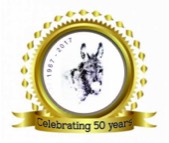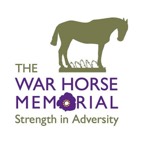Castration & Re-Homing
Castration
Before you decide to put your mare in foal, be aware that there is a 50/50 chance of the foal being male.
Donkey foals are very aware of their sexuality from a young age, and it has been known for a foal of five months old to get his own mother back in foal. A young colt foal will exhibit ‘coltish’ tendencies early on and although it is fun to play chase, and let them jump up around you when they are small, these games can quickly turn nasty in a foal that starts to throw his weight around a few months later.
So along with the other things you are considering when deciding to breed from your mare add in the costs involved in castrating your foal. The average cost of having a castration performed in 2009 is £200, and depending on your location could be substantially more with one person quoting £460, although that did include the mare and foal staying at the veterinary hospital for three days.
Speak to your own vet and ask the question, and prepare to castrate before sale; it is wholly irresponsible to sell a colt, foal or otherwise into an unsuspecting home where the new owners may not recognise the implications of having purchased an entire. You may think you have bred the best colt in the world and it would be sad to see him castrated, but he will live a much happier and fulfilled life as a gelding and be able to enjoy the company of friends. Most stallions live a solitary and frustrating life and it is only the very best who should be kept entire to secure the future of the breed.
A donkey can be castrated as young as two days old, but most vets are reluctant to perform the operation at such a young age. The optimum age to have the operation done is at about five to six months old, so the foal still has the comfort of his mum, and of course weaning is not such high priority if the chance of him covering her has been taken away. There are those who think a colt matures better the longer the operation is put off, he will have a sturdier crest and more ‘showy tendencies’, but of course he will have to be weaned at six months, and be kept in more secure surroundings. If your intention is to castrate do so as early as possible, much less traumatic for your baby and much less responsibility for you.
There is of course the need for some studs to find outcross colts to bring into their breeding programme, however most stud owners will have their eye on a certain line before the resulting foal is often born, and will have expressed a desire to purchase.
Re-homing
You may have bred your donkey with all good intentions that you will be giving him a home for life’ or you may have bred knowing full well that your foal will be for sale as soon as he/she is old enough to leave their mother.
A donkey can have a lifespan up to 40 years, so most will change homes once or more during their lifespan, and it is inevitable that the time will come when you can no longer keep your donkey and are faced with the decision to re-home them. Nobody can guarantee that the home you sell your donkey to will be suitable, but it is your responsibility to do everything you can to place them in the right home.
It is essential you know your donkey is going to a home where he will have company. Ideally this would be another donkey of similar age, as they will play and grow up at the same time. If your donkey is boisterous he may benefit from living with a slightly more mature animal, to give him some manners. A donkey will of course make a suitable companion for a horse or pony, but try to avoid goats and sheep as it has been known for a donkey to chase and even kill them.
Companionship is one of the most important issues of re-homing; donkeys are herd animals and need a companion of their own kind and will form strong and life-long bonds with another. A lonely donkey is a very unhappy and noisy donkey.
The new owners must have enough land, at least ½ an acre per donkey, which needs to be established grassland with secure boundary fences. Hedges whilst they form very acceptable windbreaks will need protection from invading teeth, as donkeys are browsers rather than grazers and will make short work of a tasty morsel of hawthorn. There must be a shelter to keep them warm and dry in winter and somewhere for them to escape the flies in summer. There must be somewhere to store feed, and if running water is not available, the new owners must be aware of the fact that water will need to be carried all year round and that it is very hard work .
If the prospective purchasers have not owned a donkey previously, it is essential that they are encouraged to research the highs and lows of donkey ownership before they embark on a purchase, and not be afraid to step back from the purchase if they have any doubts. The essentials of worming, farriery visits, poisonous plants and general donkey handling, are readily discussed on internet sites and in donkey publications. Many people dream of owning a donkey, but reality hits when they realise that it involves a lot of hard work and is not just a case of putting a donkey into the overgrown area at the back of the garden. The Donkey Sanctuary run management courses at venues around the country which provide a free and informative ‘hands on’ introduction to donkey ownership, but be warned they are popular and are often over subscribed.
It is always advisable to check if the new owners have children or grandchildren. A young donkey is not a play thing and cannot be ridden until 4 years of age. Although they may fall in love with a fluffy foal, by the time the donkey is old enough to ride, the children will have outgrown him in more ways than one.
A Crystal Ball to the future
Ideally you should work out a mutual agreement whereby the new owners agree to inform you if the donkey becomes surplus to requirements and to allow you an option to buy him/her back; or at least be able to offer assistance in finding a suitable new home if the buy back option is impractical.
If you have any doubt about the facilities in a new home or the dedication of a prospective owner, don’t do it; there are other homes and purchasers out there who will meet all the criteria – if something goes wrong it will haunt you forever!!!!!
Informative Website:
Publications:
Keeping Your Donkey Healthy (Janet Eley) £9-95



